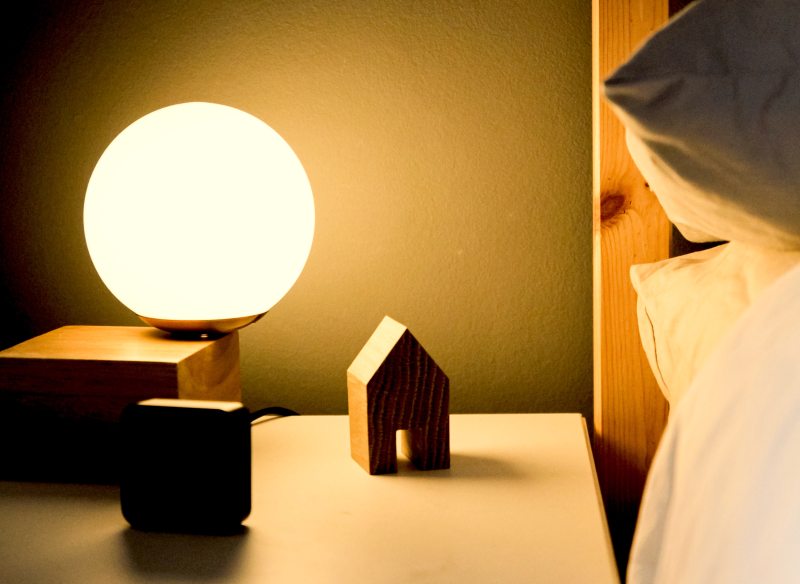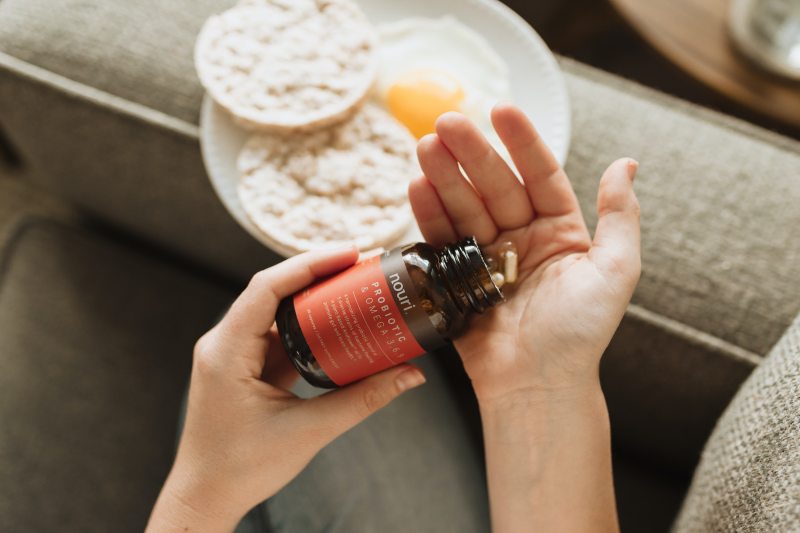If you have ever battled the winter blues, been diagnosed with clinical depression, or simply have struggled to feel happy, low serotonin may have been to blame. Serotonin is a neurotransmitter that helps elevate mood, reduce stress and anxiety, and regulate digestion and sleeping patterns. It is produced by the body in the brain as well as in the digestive tract. Low levels of serotonin are associated with depression, which is why one of the major classes of anti-depressants (selective serotonin reuptake inhibitors (SSRIs)) works by decreasing the reuptake of serotonin from the brain.
However, the good news is that you don’t necessarily have to take prescription antidepressants to increase serotonin levels in your brain and feel happier. There are natural ways to stimulate the body to produce more serotonin, effectively increasing the concentration of serotonin in your brain, which can better regulate mood.
So, whether you have concerns about taking prescription antidepressants and would prefer trying natural ways to increase serotonin, or would like to add natural ways to boost serotonin to your pharmacological management of depression, keep reading for the best, research-backed ways to naturally increase serotonin levels.
Exercise

Almost everyone who’s pushed through a hard workout has felt a rush of endorphins and mood-boosting effects of physical activity. Exercise is one of the most well-studied, evidence-based ways to naturally increase serotonin. In fact, it’s largely because of the ability for exercise to increase serotonin that physical activity is often reported to alleviate symptoms of depression.
Serotonin is produced when the amino acid tryptophan is combined with another enzyme. Therefore, increasing the availability of tryptophan can facilitate the production of more serotonin. In terms of exercise, research demonstrates that activating your muscles (as is done during physical activity) allows more tryptophan to cross the blood-brain barrier, thus making it more available for conversion into serotonin. It also uses up other key amino acids that naturally inhibit tryptophan in the body, so as these amino acids are depleted, more tryptophan can be produced.
Partaking in total-body workouts that utilize large muscle groups, such as running, hiking, lifting weights, HIIT, swimming, cycling, rowing, and playing sports may be the most effective forms of exercise to boost serotonin. Aim for working out at least 3-5 days per week for a minimum of a cumulative 150 minutes of moderate-intensity exercise per week.
Try Light Therapy

Light therapy involves exposure to bright, white LED lights with brightness or luminosity equivalent to the sun on a clear day (10,000 lux). Light exposure is effective for mood regulation because UV light exposure increases the natural production of serotonin in the brain, and studies have found an association between higher serotonin levels with greater sun exposure. Winter blues, or feeling depressed in the winter (formerly referred to as Seasonal Affective Disorder) is thought to be due to the decrease in the intensity and duration of light exposure during winter months, especially in northern latitudes. By supplementing the waning natural sun with artificial sun-light lamps, the body is exposed to an equivalent stimulus to help maintain adequate serotonin production.
If you battle depression or low energy during the winter, consider buying a light therapy lamp and beginning treatments for 30 minutes each morning upon waking to support your body’s production of serotonin during the winter. As an alternative to light therapy, getting 10-20 minutes of real sunlight exposure during peak hours can also have the same effect.
Get a Massage

Massages can be a relaxing, blissful experience. They can increase serotonin and dopamine, another neurotransmitter associated with feelings of pleasure and well-being. A massage can also decrease stress, anxiety, and tension, by lowering levels of cortisol in your body. Don’t worry; if you can’t afford to have a professional masseuse on speed dial, a friend, partner, or massage tool can also work.
Eat More Tryptophan

While there aren’t any foods that contain serotonin, plenty of foods contain tryptophan, which forms the major building block of serotonin. Because tryptophan is an amino acid, it is found in high-protein foods such as poultry, salmon, milk products, seeds, and eggs. However, boosting your tryptophan levels isn’t as simple as eating foods high in tryptophan as other amino acids in those foods compete and inhibit the passage of tryptophan across the blood-brain barrier. Consuming foods high in carbohydrates (at least 25-30 grams) aids the absorption of tryptophan when eaten concurrently. For this reason, foods that contain tryptophan and complex carbohydrates, such as oatmeal, legumes, and sweet potatoes, are more likely to increase serotonin levels than straight-up turkey.
Spend Time Outside

Getting fresh air and natural sunshine has been found to increase the body’s production of serotonin. Connecting with nature can also reduce stress and anxiety. Consider a lunchtime walk to break up the day and get a quick dose of vitamin D.
Consider Supplements

Certain dietary supplements may increase tryptophan in the body, thus stimulating the production of serotonin. The most notable supplements that may boost serotonin levels by way of increasing tryptophan are probiotics, SAMe, 5-HTP, St. John’s Wort, and tryptophan itself. Research isn’t necessarily definitive on the efficacy of these supplements on increasing serotonin levels, but it may be worth discussing the options with your doctor.
Probiotics are found in fermented foods such as yogurt and sauerkraut, as well as supplements, support the healthy bacteria in your gut. Gut bacteria help produce tryptophan through their metabolic activity.
SAMe (S-adenosyl-L-methionine), 5-HTP, and St. John’s Wort are herbal supplements used to treat depression with some evidence suggesting they increase serotonin production. However, it’s extremely important to discuss the use of these supplements with your doctor before taking them, as they can have serious adverse effects when combined with other medications, especially antidepressants.
Lastly, though research is lacking, there is some evidence to support the use of pure tryptophan supplements for jumpstarting natural serotonin production.



